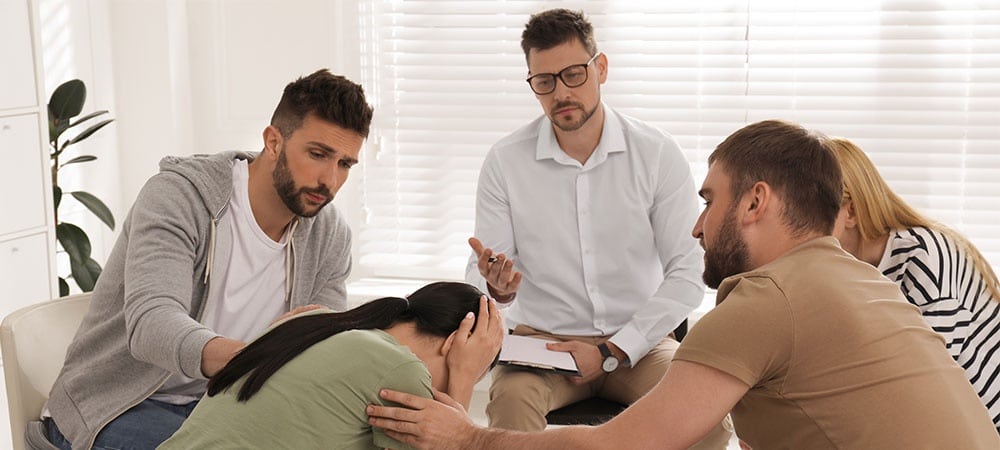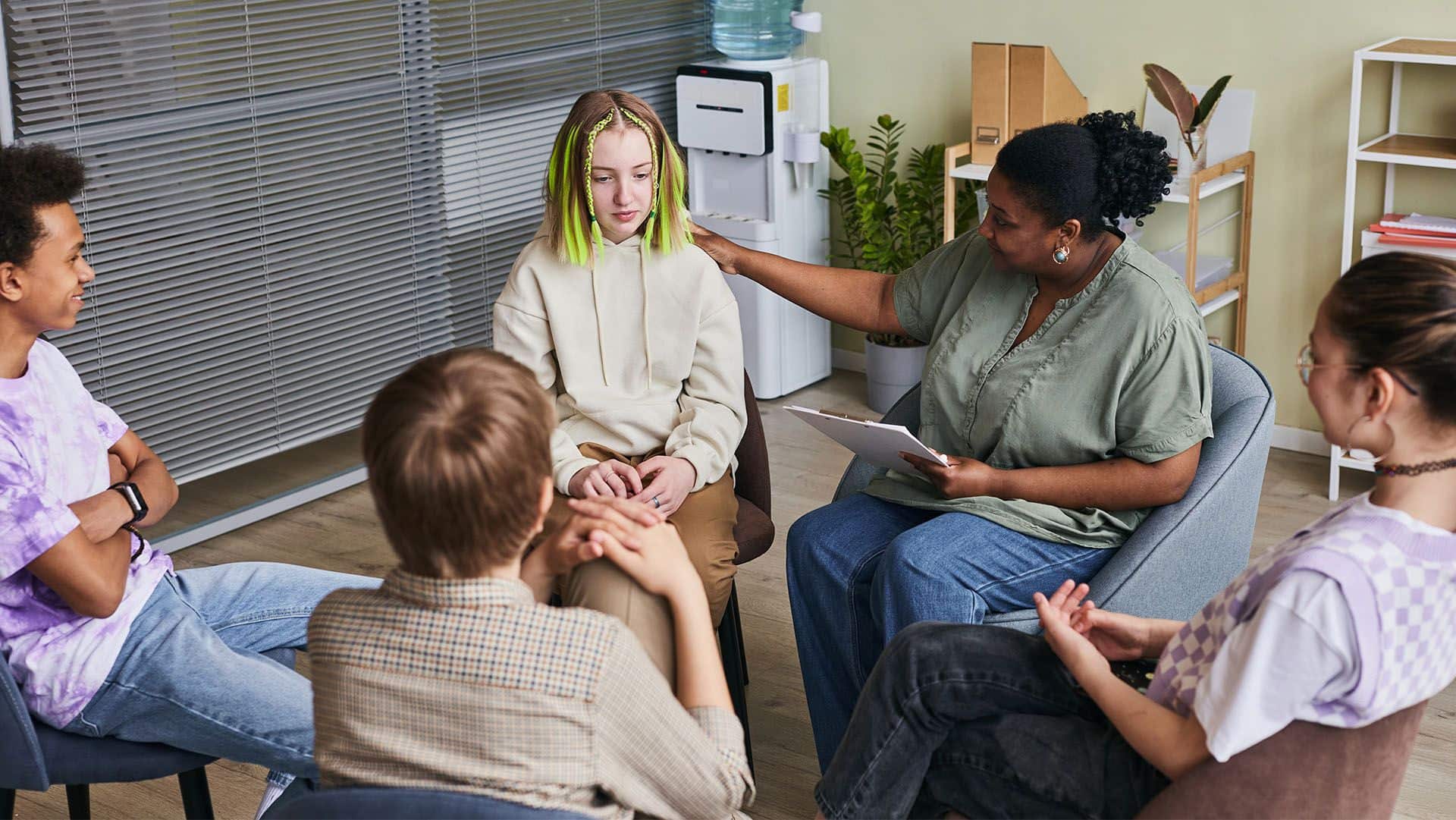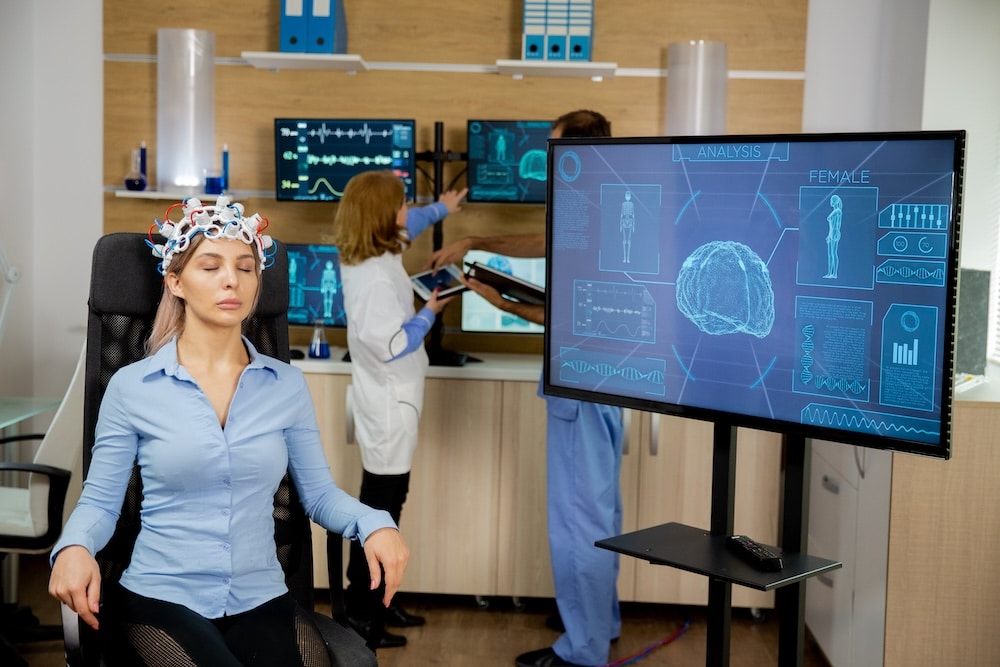Group Therapy as an Addiction Treatment Tool
Substance abuse recovery is a difficult process to go through, and the last thing you should be expected to do is to go through it alone. A sense of community and belonging is an important part of the recovery process and has been shown to help those who have struggled with addiction. Group therapy as an addiction tool provides these benefits and so many others. For that reason, it should be considered an addition to your well-rounded recovery.
What is Group Therapy?
Group therapy is a type of psychotherapy in which group members meet to share and discuss their experiences under the supervision of a licensed therapist. The licensed therapist may be a psychologist, psychiatrist, or counselling professional. These mental health professionals are equipped to handle the mental health issues that often occur alongside addiction.
Group meetings, which will also be discussed here, are a little bit different in that they are led by a facilitator who is well-versed in program material and trained to lead those meetings. These group support meetings are just as valuable as group therapy, but there is a distinct difference which will be covered here.
What are the Benefits of Group Therapy?
Like any form of therapy, group therapy sessions offer some very unique benefits. These are worth exploring, as in addiction recovery you can never really have too many tools at your disposal.
Safe Place. A group setting offers a safe space to explore your experiences with addiction. The people in your group sessions have more than likely gone through so many similar experiences to you, so your stories can be shared without fear of judgement. It may also be helpful to remember that your group members are there for the exact same reason as you – to focus on their recovery.
Community and Belonging. Being with a group of people who have similar issues to you can serve as a gentle reminder that you are not alone. In this setting, you can make connections with other people who understand what you’ve gone through.
This sense of community and belonging can help lift feelings of isolation and loneliness. This group environment also gives you a place to go when things get tough, or you are worried about relapse. The people in your group can support you through those times, and also be there to celebrate your recovery wins.
Perspective. Hearing from other people and how they cope with the struggles of recovery can be helpful to your own recovery journey. When you confront these struggles yourself, you can use the insight from your other group members to pull through. They may be able to help you shift your perspective, which can be helpful when you hit a bump in the road. Sometimes being able to see a situation from a different perspective can help you come up with better ways of thinking about them and more unique solutions.
Mentors and Role Models. Some people you meet in a group therapy setting will remain acquaintances, and some may become friends. Others can become mentors or role models for you if they are in a position to do so. Those mentors and role models would typically be individuals who have been engaged in recovery for some time and have a lot of wisdom and experience to share. Having these people to look to for guidance can help you with your sobriety.
Accountability. Sharing your addiction experience and recovery journey with others can help you hold yourself accountable. When you engage in planning with the group, you become accountable to keep your word when you see the group again. When you know you’re going to share about your week, it can influence you to make positive decisions in your day knowing you will share them with the group in the future. This can be a powerful tool in addiction recovery.
Encouragement. Recovery is hard! It’s normal to need a little encouragement along the way. You may come to think of your group therapy members as your cheerleaders. In fact, you may all become cheerleaders for one another. You are all working towards the same goal, and thus only benefit from having one another as a support system. Plus, seeing a win for someone else means that you can do it too.

What are Group Meetings?
As mentioned earlier, group meetings are a little different from group therapy sessions. Group meetings are usually open to the public, and group leaders are facilitators as opposed to a psychologist or a psychiatrist. Group meetings can be thought of as support groups. These meetings can be really valuable because they tend to be affordable (free) and accessible (easy to find).
One option would be joining Alcoholics Anonymous (AA) or Narcotics Anonymous (NA) if that suits your needs. There are other anonymous meetings available, but 12-step meetings are usually open to anyone struggling with addiction as they all follow the same principles.
When you engage in a 12-step meeting, you might notice that a lot of the attendees have similar problems as you. Going to a meeting like this can help you not only in your recovery but in many other ways as well. Learning to be open and talk to others with such vulnerability can enhance your communication skills. Being in this type of environment can also increase your social skills, as you will be introduced to many new types of people.
SMART Recovery is another group meeting option. It isn’t technically therapy, but another group meeting option. These group sessions are led by a trained facilitator. SMART Recovery uses Cognitive Behavioural Therapy (CBT) techniques to help you frame your thoughts and emotions differently. This change can in turn be used to change your behaviour and create new habits. You can also learn tools on how to beat cravings.
SMART Recovery is different from 12-Step Meetings in that they take a psychological approach to recovery, instead of focusing on any spiritual aspect. Whichever meeting you decide to go to, you can’t lose. You can even decide to attend both. Both offer the same benefits as group therapy: a safe place to share your experience, encouragement, community and belonging, and a chance to meet new people who can impact your life in a positive way.
Group therapy is different distinctly in that the sessions are led by a mental health professional. In contrast to group meetings, group therapy will typically (not always, but most commonly) come at a cost in order to have that professional involved. If you are dealing with mental health issues in concurrence with addiction issues, it may be helpful to attend (or also attend) a group therapy session managed by a psychologist or psychiatrist, so that those issues can be addressed too.
How Can I Find Group Therapy?
Group therapy is sometimes offered as a part of an outpatient or inpatient recovery program. This is not always the case. Whether you attended group therapy under those circumstances or not, you can always pursue group psychotherapy on your own.
There are a few different ways you may get involved in group therapy. You could search online for a group or a counsellor who offers these types of sessions. In some cases, you may also be referred by your doctor. A substance abuse counsellor would also be in a position to refer you.
If you’re having trouble finding a group therapy option, you can also ask the professionals at a detoxification facility. Usually, these individuals will refer the people they intake to group therapy, and have knowledge of the various resources available in your area.

What is the Difference Between Individual and Group Therapy?
Individual counselling also offers benefits to those in addiction recovery, however, group therapy does offer the unique advantage of sharing experiences and the opportunity to relate to the experiences of others. That said, you don’t need to choose one or the other. You can attend group therapy while also going to individual therapy sessions on your own, and reap the benefits of both.
Group therapy can be used alongside other treatment modalities as well, including conventional methods like family therapy and medication, and also holistic modalities like art and music therapy. Addiction treatment is not one-size-fits-all, and no single treatment modality can be deemed better than another. You should feel free to explore all the options available to you.
Connection and Addiction
As the saying goes – connection is the opposite of addiction. The circle of addiction continues when we allow our shame and guilt to fester in secret. When we share deep painful things in a safe space with people who understand and we release our secrets we also release the shame that motivates the addict to keep using.
The effectiveness of group therapy is evident in how many people it has helped! Maintaining abstinence is difficult, but hopefully being in a group therapy session and witnessing the recovery of others has reinforced the idea that if other people can maintain sobriety, so can you.
Exploring new avenues of recovery can be challenging and intimidating, but it can also be worth it. Group therapy could be the new way you discover how to continue making positive changes in your life.







